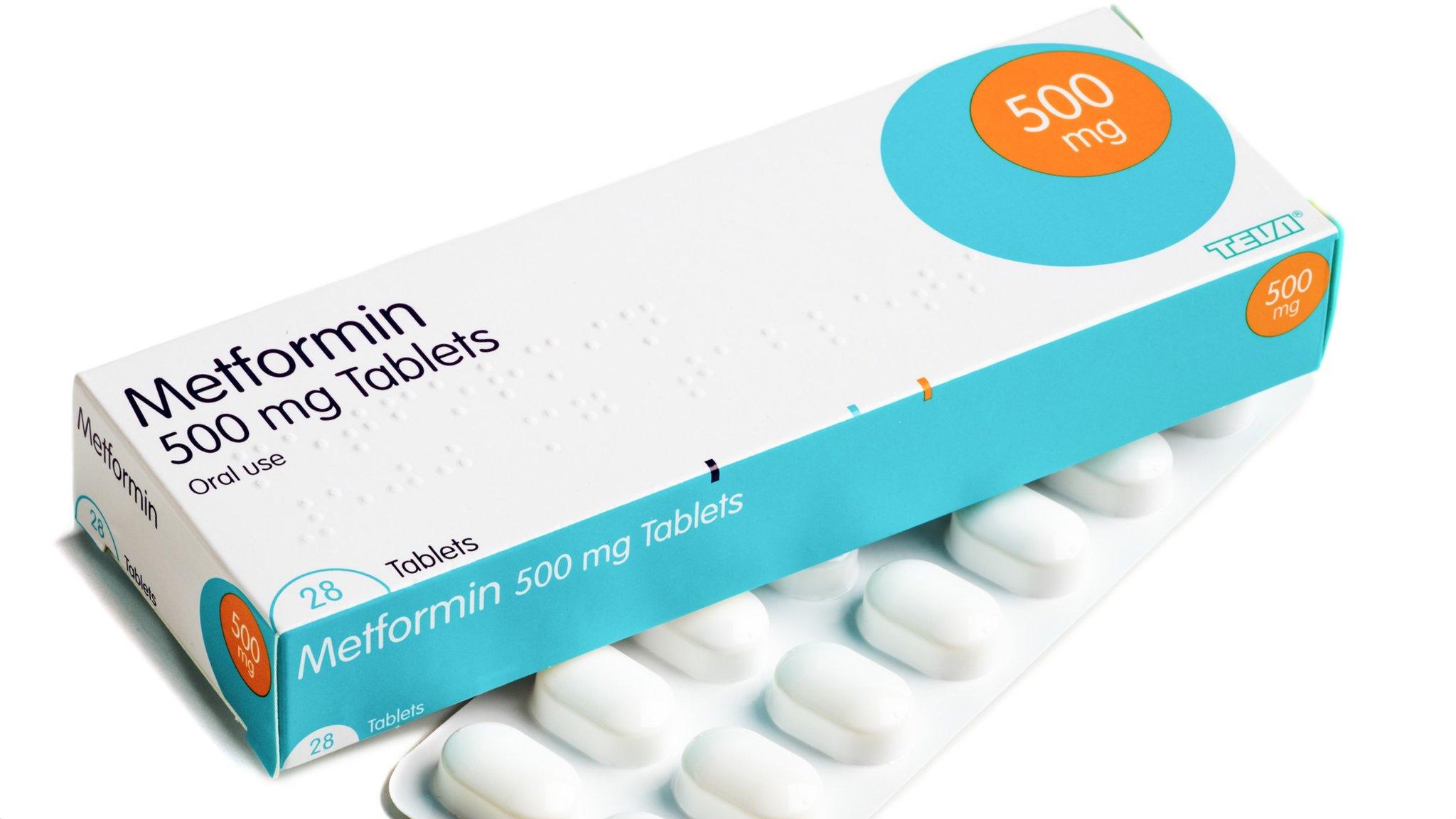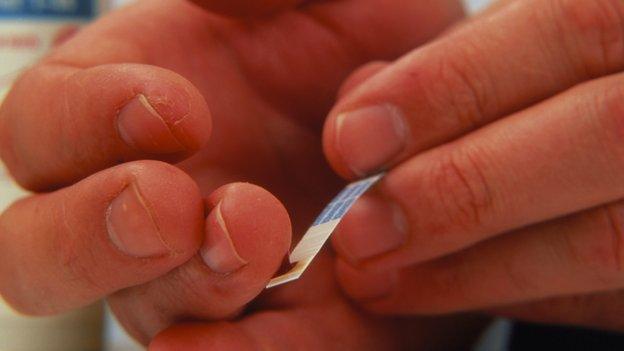Diabetes cases soar by 60% in past decade
- Published
Ramona Mulligan who has diabetes: "I felt disappointed I hadn't looked after myself better"
The number of people living with diabetes has soared by nearly 60% in the past decade, Diabetes UK warns.
The charity said more than 3.3 million people have some form of the condition, up from 2.1 million in 2005.
The inability to control the level of sugar in the blood can lead to blindness and amputations and is a massive drain on NHS resources.
The NHS said it was time to tackle poor lifestyle, which is a major factor behind the rise.
Diabetes UK called for the NHS to improve care for patients and for greater efforts to prevent diabetes.
Roughly 90% of cases are type 2 diabetes, which is the form closely linked to diet and obesity.
People with type 1 generally develop it in childhood and are unable to produce the hormone insulin to control their blood sugar levels.
New diagnosis
Dr Joan St John, a GP in Brent in north-west London, where diabetes levels are some of the highest in the country, said the condition had become incredibly widespread.
She told the BBC News website: "It's very noticeable in that not a week goes by that you don't make a new diagnosis of diabetes, at least one if not two or three; previously that might have been one a month."
The complications of uncontrolled blood sugar levels can be severe, including nerve damage, loss of vision and organ damage.
The head of Diabetes UK says it is the complications of the disease that put pressure on the NHS
The condition even leads to 135 foot amputations every week across the country.
Dr St John added: "Unfortunately that historical myth that it is not a serious condition is still retained by some people and you have to dispel that myth."
"One of the most miserable complications is neuropathy [nerve damage] which can cause a constant nagging, gnawing ache, usually in the legs or feet, and this can be really disturbing and there is no cure for it," she added.
Data published last week showed that diabetes medication now accounts for 10% of the NHS drugs bill.
Nearly £869m was spent on drugs, including insulin and metformin, marking a sharp rise from the £514m being spent a decade ago, when the drugs accounted for just 6.6% of the prescriptions budget.
Part of GP pay is linked to diagnosing and treating diabetes - and has been for years. The government says this is to improve care.
The reasons why levels of type 1 diabetes are increasing are not understood.
However, the explanation for the soaring cases of type 2 are being placed squarely on the nation's ballooning waistline.
Barbara Young, the chief executive of Diabetes UK, said the government needed to act to prevent new cases and improve treatment for those already affected.
She said: "Diabetes already costs the NHS nearly £10bn a year, and 80% of this is spent on managing avoidable complications."
"So there is huge potential to save money and reduce pressure on NHS hospitals and services through providing better care to prevent people with diabetes from developing devastating and costly complications," she added.
Dr Martin McShane, NHS England's Director for Long Term Conditions, said: "These figures are a stark warning and reveal the increasing cost of diabetes.
"We've said it before and we'll say it again, it's time to get serious about lifestyle change."

- Published12 August 2015

- Published14 January 2015
